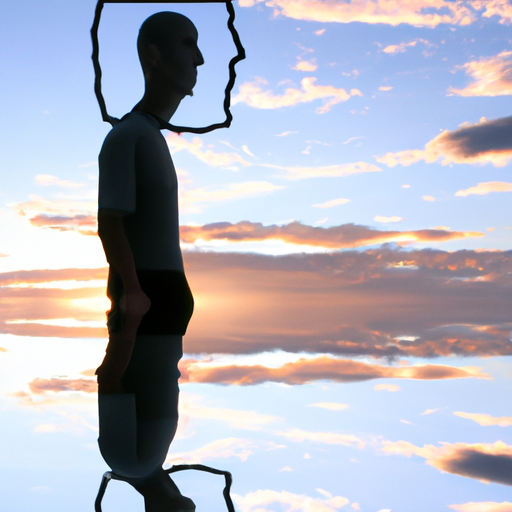
Journaling as a method of self-reflection
Journaling is a popular method of self-reflection that involves writing down one's thoughts and feelings in a journal or diary. It is a powerful tool that can help individuals understand their emotions, identify patterns in their behavior, and gain clarity on their goals and aspirations. By reflecting on their experiences and thoughts, individuals can gain insight into their attitudes and beliefs.
A study published in the journal Advances in Psychiatric Treatment found that regular journaling can help reduce symptoms of depression, anxiety, and stress. It can also improve overall well-being and boost self-confidence. Journaling can be done at any time of the day, allowing individuals to reflect on their day-to-day experiences, events, and feelings.
To start journaling, all you need is a pen and a notebook. Find a quiet place where you can write without distractions. Set aside time each day to reflect on your thoughts and feelings. You can write about anything that comes to mind, without worrying about spelling or grammar. The goal is to express yourself freely and gain insight into your thoughts and emotions.
Meditation as a method of self-reflection
Meditation is another powerful method of self-reflection that involves stillness and quietness of the mind. It allows individuals to observe their thoughts and emotions, without reacting or judging them. By practicing meditation, individuals can become more aware of their thought patterns, emotions, and body sensations. They can learn to control their emotions and become more compassionate towards others.
Studies have shown that meditation can help reduce symptoms of anxiety, depression, and stress. It can also improve focus, concentration, and overall well-being. Meditation can be done at any time of the day, and individuals can start with just a few minutes of practice each day.
To start meditating, find a quiet place where you won't be disturbed. Sit comfortably in a chair or on the floor, with your spine straight and your eyes closed. Focus on your breath, and observe your thoughts without reacting to them. If your mind wanders, gently bring it back to your breath. Start with just a few minutes of practice, and gradually increase the time as you become more comfortable with the practice.
Positive impact of self-reflection on mental health
Self-reflection can have a positive impact on mental health, by reducing symptoms of anxiety, depression, and stress. It can also improve overall well-being, by helping individuals connect with their inner selves and find meaning in their lives. By reflecting on their thoughts and emotions, individuals can gain insights into their attitudes and beliefs, and become more aware of their strengths and weaknesses.
A study published in the Journal of Positive Psychology found that self-reflection can help improve well-being by increasing self-awareness, self-regulation, and self-transcendence. It can also reduce symptoms of depression and anxiety, and improve overall life satisfaction. By engaging in self-reflection, individuals can become more resilient in the face of adversity, and develop a more positive outlook on life.
Tips for incorporating self-reflection into daily routines
Incorporating self-reflection into daily routines can help individuals achieve continued self-improvement and personal growth. Here are a few tips for incorporating self-reflection into daily routines:
- Set aside time each day for self-reflection: Whether it's through journaling, meditation, or simply reflecting on your thoughts and emotions, make it a habit to engage in self-reflection each day.
- Practice mindfulness: Pay attention to your thoughts and emotions throughout the day, and try to observe them without reacting or judging them.
- Seek feedback from others: Ask friends, family members, or colleagues for feedback on your behavior or performance. Listen to their feedback with an open mind, and use it to identify areas for improvement.
- Keep a gratitude journal: Write down three things you're grateful for each day, and reflect on why they're important to you.
- Take time to reflect on your goals: Set aside time each week to reflect on your goals and progress. Identify areas where you've made progress, and areas where you need to improve.
In conclusion, self-reflection is a powerful practice that can help individuals gain a deeper understanding of themselves and their surroundings. It allows people to become more self-aware, identify their strengths and weaknesses, and connect with their inner selves. By engaging in self-reflection through journaling, meditation, and other methods, individuals can achieve personal growth, improve mental health, and enhance overall well-being. Incorporating self-reflection into daily routines can help individuals achieve continued self-improvement and build a more fulfilling life.
Comments
Post a Comment